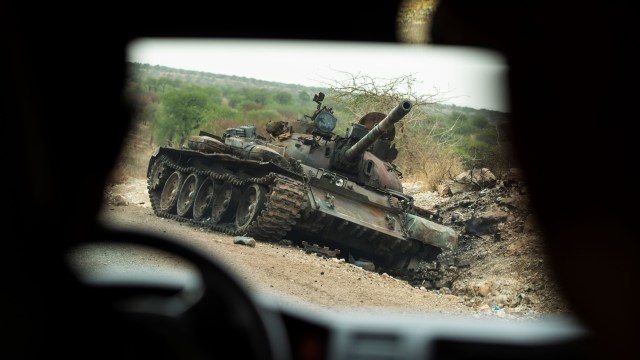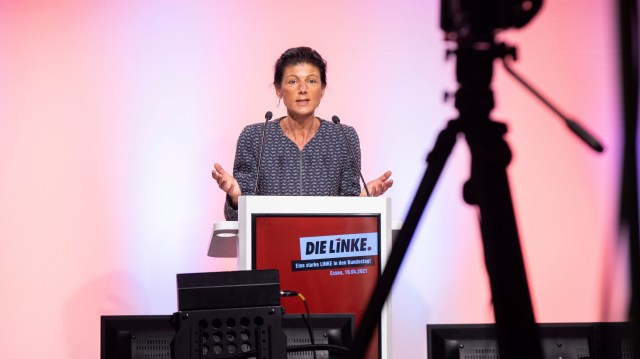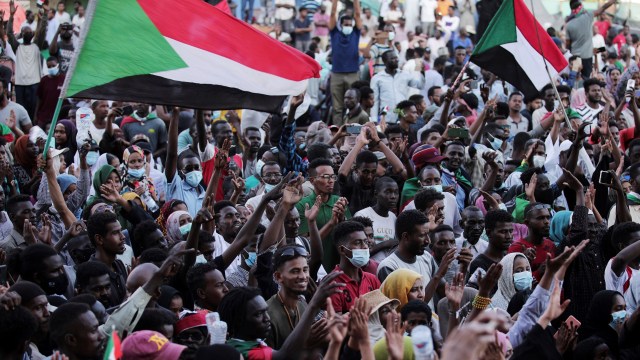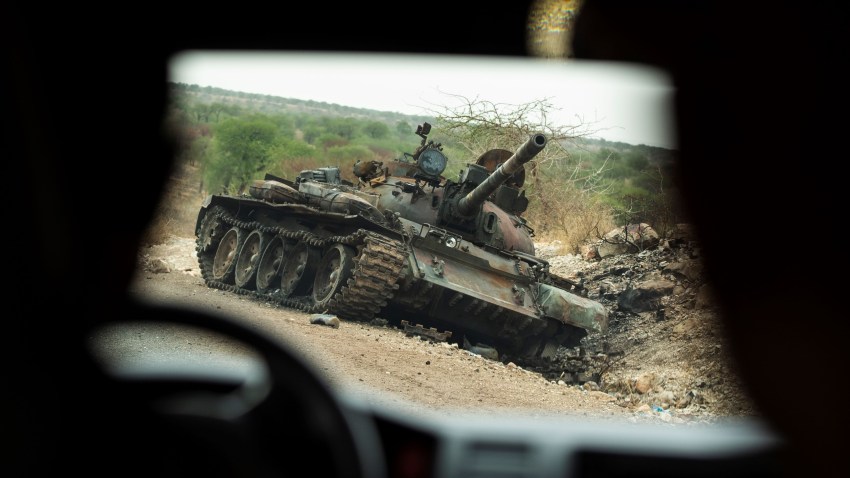Hello, everyone. Today at WPR, we’re covering the conflict in Ethiopia’s Amhara region and the far-left threat to Germany’s democracy.
Now, here’s our take on today’s top story:
India-China border: The 19th round of military talks between India and China over a standoff at their disputed border resulted in a joint statement in which army commanders from the two sides agreed to work swiftly toward easing the confrontation. The statement represents a shift toward a softer tone regarding the dispute, which dates back to a deadly clash in 2020 at their undemarcated border in the Himalayas. (Bloomberg)
Our Take: India and China’s political and trade relationships have deepened in the 21st century as their economies grew and their international profiles rose. But their decades-old border dispute has always symbolized the unease underlying their otherwise cordial ties, while also representing a potential flashpoint.
That potential became reality in 2020, when seemingly out of the blue, a series of Chinese incursions led to several deadly clashes between the two sides’ forces stationed at the Himalayan frontier, offering a reminder that the contested border still has the power to destabilize relations between the two powers.
Since that clash, leaders on both sides have attempted to put the dispute on the backburner. Doing so, however, has proven much simpler for Beijing than for New Delhi. Indian nationalists have increasingly called for a much harder line on the border, creating domestic pressure for the Indian government when it comes to relations with China. As a result, New Delhi has adopted a much colder tone toward Beijing in recent years, signaling that it won’t get back to business as usual without a resolution to the standoff.
This sudden shift toward a softer tone regarding the border dispute, then, may simply be a way to smooth relations ahead of a BRICS summit next week and a G-20 summit hosted by India in September. The India-China rivalry also plays out in both of those multilateral formats, particularly BRICS. But Beijing and New Delhi each have vested interests in making sure the upcoming summits go well.


Amhara Has Become Ethiopia’s Latest Battlefield
In Ethiopia, the end of the war in Tigray in November 2022 brought relative peace to the region and eased international pressure on Addis Ababa. Yet, it has precipitated the explosion of another devastating war—this time in the country’s Amhara region.
Beginning in late July, local militias known as the Fanos established de facto control over Amhara. The federal government then declared a state of emergency, followed by an intense military campaign by government forces to retake control of the region.
Bereket Diriba breaks down the roots of the conflict and its implications for Amhara and Ethiopia as a whole.
Germany Might Soon Have a Far-Left Version of the AfD
Concerns over the state of democracy in Germany have so far focused on a surge of support for the far-right AfD party. But other movements are also preparing their own campaigns to dismantle the country’s political status quo.

The one with the most potential for success? The far-left Left Party. One of the party’s most prominent figures has become a political star and might launch her own political party that links anti-capitalism with nationalist cultural values.
Columnist Alexander Clarkson looks at what that could mean for German politics.

More than 1 million people have now fled Sudan to neighboring states, after four months of war between the Sudanese army and the paramilitary Rapid Support Forces have devastated the country. “The situation is spiraling out of control,” U.N. agencies said in a joint statement.
The conflict is a security and humanitarian crisis. It is rooted, however, in a political crisis. As Yasir Zaidan wrote in June, the civil war grew out of the failure to build a sustainable democratic transition after the popular uprising that removed former dictator Omar al-Bashir from power in April 2019.

Only a United Civilian Coalition Can Bring Peace to Sudan
June 22, 2023 | The current conflict in Sudan is a political crisis growing out of the failed post-Bashir democratic transition. Read more.
Ahead of Sunday’s runoff presidential election, Guatemala’s largest military veteran organization endorsed conservative Sandra Torres, a former first lady, who is facing off against Bernardo Arevalo, a progressive who shocked observers by placing second in the first round of voting in June.
In recent years, Guatemala has taken an increasingly authoritarian turn, with a political class, including Torres, that consistently looks out for its own interests. Still, it’s also not clear that Arevalo would be able to institute changes to such an entrenched system even if he were to win.
As Will Freeman and James Bosworth wrote in respective stories ahead of the first round of voting, Guatemala’s democracy may already be a relic of the past:
That’s all for today’s Daily Review. Coming up, we’re covering political upheaval in the Netherlands and the implications of Argentina’s open presidential primary results.
Have a great day,
Jakob Cansler
More From WPR
- Charli Carpenter on how the U.S. military could help fight climate change.
- Borzou Daragahi on Iran-Afghanistan relations.
- James Bosworth on protecting the Amazon.
- Francisco Serrano on Algeria’s growing ties to China.

